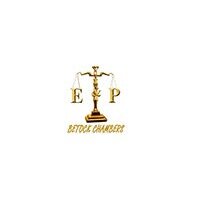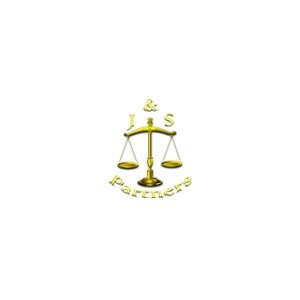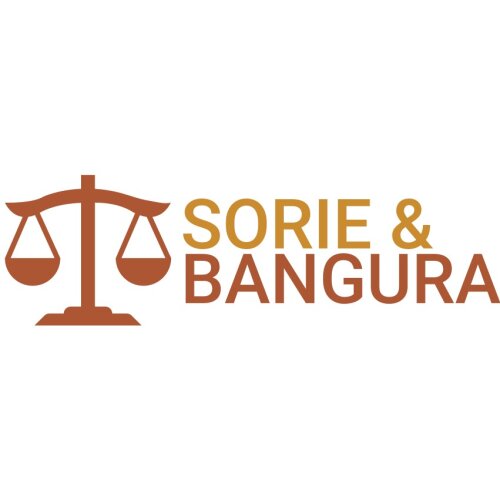Best Conveyancing Lawyers in Sierra Leone
Share your needs with us, get contacted by law firms.
Free. Takes 2 min.
Free Guide to Hiring a Real Estate Lawyer
Or refine your search by selecting a city:
List of the best lawyers in Sierra Leone
About Conveyancing Law in Sierra Leone
Conveyancing in Sierra Leone refers to the legal process of transferring ownership of land or property from one party to another. This process typically includes preparing, verifying, and executing the documents needed for the legal transfer of title. Conveyancing law is primarily governed by the Conveyancing Act 1881, the Registration of Instruments Act, the Mortgage Act, and customary land tenure laws. The legal process ensures that land transactions are executed properly and that parties involved have clear and secure title to the property.
Why You May Need a Lawyer
Engaging a qualified lawyer for conveyancing transactions in Sierra Leone is highly advisable due to the complexity of property laws, land tenure systems, and frequent challenges in verifying land ownership. Common situations where legal help is recommended include:
- Buying or selling land or property
- Transferring property to family members or heirs
- Obtaining or granting a mortgage
- Resolving boundary disputes
- Investigating the authenticity of land documents or title deeds
- Handling land held under customary tenure, especially outside the Western Area
- Dealing with joint ownership or co-ownership issues
Lawyers help protect clients from fraud, ensure compliance with statutory and customary requirements, prepare the necessary documents, and represent interests in any legal disputes that may arise.
Local Laws Overview
Conveyancing in Sierra Leone operates under both statutory law and customary law, which means the legal requirements may differ depending on whether the land is in the Western Area or in the Provinces. The Western Area follows English-based statutory land law, while the Provinces generally operate under customary tenure administered by local chiefs and family heads. Key legal aspects include:
- Registration of Instruments Act: Mandates that all instruments (such as deeds of conveyance and mortgages) must be registered at the office of the Administrator and Registrar General in the Western Area, or with local authorities in the Provinces.
- Conveyancing Act 1881: Provides the general legal framework for the sale, transfer, and mortgage of land in Sierra Leone.
- Consent Requirements: In the Provinces, family or community consent is often needed before land can be transferred, sold, or mortgaged.
- Verification of Title: Buyers must conduct due diligence to confirm that the seller is legally entitled to sell the land and that there are no encumbrances or disputes registered against it.
- Customary Land Tenure: In the Provinces, land is usually owned collectively by families or communities, so transactions must follow local customs and procedures as well as statutory regulations.
Compliance with both statutory and customary laws is essential to prevent future disputes and secure property rights.
Frequently Asked Questions
What documents are required to buy or sell land in Sierra Leone?
Typical documents include a valid title deed or conveyance, a site plan, a tax clearance certificate, proof of identity, consent from family heads or chiefs (if applicable), and an executed sale agreement.
How do I verify that the person selling the land is the legal owner?
You should conduct a search at the Office of the Administrator and Registrar General or with local authorities to confirm ownership, review the land documents, and consult a lawyer to help investigate any encumbrances or disputes.
Do land transactions in Sierra Leone need to be registered?
Yes, all land transactions over statutory land in the Western Area must be registered with the Office of the Administrator and Registrar General. In the Provinces, registration follows local authority procedures and may involve the chiefdom administration.
Can foreigners own land in Sierra Leone?
Foreigners can lease but generally cannot own freehold land. Leaseholds are usually granted for up to 99 years, subject to governmental approval and compliance with relevant laws.
What are the risks of not registering a land transaction?
Failure to register may render the transaction invalid against third parties, increase the risk of legal disputes, and make it difficult to prove ownership in court.
How are disputes over land typically resolved?
Land disputes may be resolved through negotiation, mediation, or litigation in courts. In the Provinces, customary courts or local authorities may also play a role. Consulting a lawyer is advisable to determine the best course of action.
Do I need the consent of the local chief to buy land in the Provinces?
Yes, buying land in the Provinces usually requires the written consent of family members, community heads, and the local chief to transfer rights and avoid future disputes.
What is the role of the lawyer in a conveyancing transaction?
A lawyer will conduct due diligence, prepare and review documents, ensure all legal requirements are met, and represent your interests to prevent fraud or disputes.
Can I mortgage my property in Sierra Leone?
Yes, properties with valid and registrable titles can be mortgaged, often to secure loans from financial institutions. Additional requirements may apply based on location and tenure.
What fees and taxes apply to conveyancing transactions?
Fees may include stamp duty, registration fees, survey fees, search fees, and lawyer’s professional fees. Tax clearance from the National Revenue Authority is often required before registration.
Additional Resources
If you need advice or more information on conveyancing in Sierra Leone, the following resources may be of help:
- Administrator and Registrar General’s Department: For land registration, title searches, and general information (mainly in the Western Area)
- Ministry of Lands, Housing and Country Planning: For policy, regulations, and land allocation issues
- National Revenue Authority: For tax clearance and information on stamp duties
- Local Chiefdom Authorities: Especially important for transactions in the Provinces under customary tenure
- Sierra Leone Bar Association: For assistance in locating a reputable conveyancing lawyer
Next Steps
If you are considering buying, selling, or transferring property in Sierra Leone, it is crucial to engage an experienced lawyer who understands both statutory and customary land tenure systems. Start by gathering all property documents and conducting a title search, then arrange a consultation with a qualified legal professional. Ensure that all agreements are in writing, comply with required legal standards, and are properly registered to secure your ownership and protect your investment. Do not hesitate to contact relevant government offices or local authorities if you need clarification on specific procedures or requirements.
Taking these steps can help you avoid common pitfalls and ensure a successful and secure conveyancing transaction in Sierra Leone.
Lawzana helps you find the best lawyers and law firms in Sierra Leone through a curated and pre-screened list of qualified legal professionals. Our platform offers rankings and detailed profiles of attorneys and law firms, allowing you to compare based on practice areas, including Conveyancing, experience, and client feedback.
Each profile includes a description of the firm's areas of practice, client reviews, team members and partners, year of establishment, spoken languages, office locations, contact information, social media presence, and any published articles or resources. Most firms on our platform speak English and are experienced in both local and international legal matters.
Get a quote from top-rated law firms in Sierra Leone — quickly, securely, and without unnecessary hassle.
Disclaimer:
The information provided on this page is for general informational purposes only and does not constitute legal advice. While we strive to ensure the accuracy and relevance of the content, legal information may change over time, and interpretations of the law can vary. You should always consult with a qualified legal professional for advice specific to your situation.
We disclaim all liability for actions taken or not taken based on the content of this page. If you believe any information is incorrect or outdated, please contact us, and we will review and update it where appropriate.
Browse conveyancing law firms by city in Sierra Leone
Refine your search by selecting a city.













